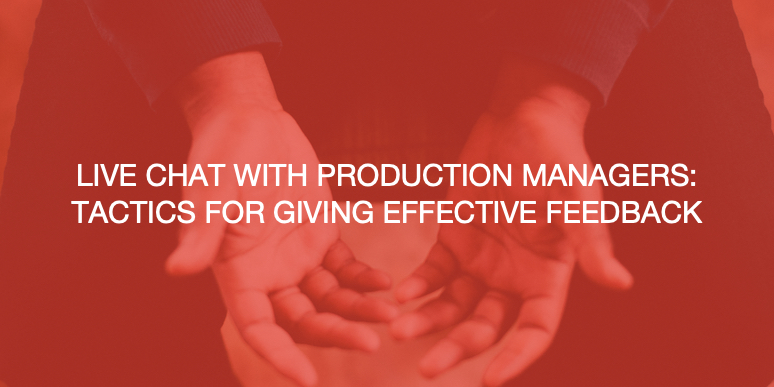
This post was originally published in October, 2015. It has been updated for accuracy and comprehensiveness.
Last fall, I read about a live event design and production company in California that faced HUGE fines over improper i-9’s for their employees. Running an event production company for the last eight years has given me some perspective on the human resource challenges faced by live event companies.
People operations is always a complex task for a business owner. Small or large company, it doesn’t matter. Labor laws have evolved in incremental stages over time. Mainly this is because they are meant to address issues as they arise. It’s almost impossible to predict every challenge, especially in such a rapidly evolving labor market.
But when these sometimes starkly different laws are fused together, they present a challenging set of rules. Even well-established, successful companies struggle to navigate. Imagine the difficulty (and cost!) for inexperienced business owners and entrepreneurs. You could compare it to quenching your thirst by drinking from a fire hose.
Let me say off the bat, there isn’t a magic bullet. Every company is different, managing a mix of employees and/or contractors. Regulations, both federal and local, may or may not apply depending on your company’s operations.
But over the years I have pulled out a few truths from my countless hours on the phone with the Small Business Administration, my lawyer, accountant, and yes, my mom (a financial professional). Managing people is hard, and complicated and a TON of paperwork. But here are 4 mistakes you might be making that you should address immediately. Your bottom line will thank you.
1. Don’t Cut Corners on Your Paperwork
I know it can seem like you’re dealing with an endless stream of documents. But being meticulous from the word “go” makes everything easier for long-term success.
If you have new employees showing up on site, send them paperwork with clear instructions to fill out in advance. But bring another copy to the site for when they forget to bring it.
Our production company has had over 500 part-time employees and freelancers over the last 8 years. At one point, as we raced to keep pace with our growth, we could have been a company facing similar challenges as the one described in the beginning of this post. So we made it part of our process to always send the following to all new employees:
-
W-4
-
i-9
-
IT-2104 (New York City only)
-
Wage Theft Notice
-
Employee Handbook
-
Signature page for receipt of the Employee Handbook
-
Additional company policies (like expense policies, job descriptions, direct deposit, expectation documents, NDA’s etc.)
Be unambiguous. Potential employees need to have legal documentation and identification to work. If they don’t have it or haven’t completed paperwork prior to their call, that they will not be allowed to work that day. Period.
2. Your Structure Needs to Work For You
Our employees at Tinc work on a job by job basis. This means that we frequently meet new hires for the first time on site. We don’t have a traditional office structure. We don’t have a formal orientation day. They show up in the morning, fill out paperwork, pick up their wrenches, and start to work. And we aren’t alone.
Many live event businesses don’t have HR leads on a production site. This can create a clouded reporting structure. Whose job is it to say, “No, you can’t work unless you fill out this paperwork properly?”
Situations, like a potential employee only having one form of ID might seem like small peanuts. In the moment, making the decision to send that person home may seem like it would have a greater impact on the production and your company. With so much going on on-site, the last thing anyone wants to do is shift focus away from the project to make sure some boxes are ticked and sections filled out.
Stop. Reject this thinking. In the unfortunate situation that you end up short-staffed, trust your event team to pick up the slack. The reality is these seemingly minor situations are what get companies in trouble. Make sure your crew heads understand how to carry forward HR needs.
3. Beware of Bad Employee/Contractor Classification
This is tricky for us and other companies like us that rely on a labor force of freelancers. Classification has always been blurry, even with newly released interpretations and best practice guidance from the US Department of Labor.
There are some serious financial implications for incorrect classification. Better to simply classify even your freelancers as employees. Yes, this will raise the true cost of hiring. But in my experience, this is worth the extra budget and effort. Misclassification audits could be just as costly if not more so.
4. Don’t Insulate Yourself
Specifically, make friends with the people operations departments at competitor companies! HR is complicated and most of the time, we all deal with it in our tiny cubicles. Get out of those cubes and help each other out!
First, it won’t hurt your business. In fact, quite the opposite. My HR colleagues and I send each other redacted copies of notices that we get in the mail. We talk back and forth, share experiences, and often build consensus on ways to handle certain situations. We even send out reminders for milestones like quarterly taxes and W-2 deadlines.
Even with years of experience and amazing people working for you, all event production companies can find themselves in situations they never intended. By putting in the work ahead of time and sharing information with colleagues, we increase the likelihood we’ll all arrive at sound and sustainable solutions.
Did we miss anything? Let us know in the comments below and share your experiences for other professionals.



